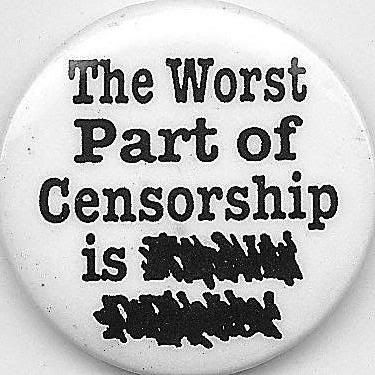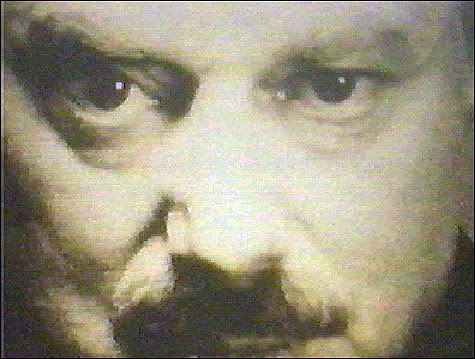
A while back I saw a film called “Looking for Comedy in the Muslim World” by Albert Brooks. Brooks, who's most successful role appears to be “Marlin” the overly protective paternal clown fish in the Disney production “Finding Nemo” has always come across as a somewhat self deprecating comedian who gets most of his laughs from being a neurotic and overly up-tight middle class American.
His movie (in which he starred, wrote and directed) about the Muslim world was a box office bomb but the concept of comedy in non-western societies has a great deal or merit.
The Chinese society today, like the Arabs, doesn't really come across as a culture that is overly satirical or funny to the outside world. More so with the current international political and societal stance of China it is hard to view China as a funny nation.
In my time in Shanghai as a cultural bastard or what is commonly referred to as a banana (Yellow on the outside, white on the inside) I have experienced first hand blank looks from Chinese staff and colleagues when I try to use Australian satire in my communications. Australian humor is a slightly less dry version British humor. Thick with sarcasm and self deprecation in the style that is populated by comedians such as Steady Eddie (a stand up comedian who has cerebral palsy, making spastic jokes) and Jimoen (an Irish comedian making Irish jokes). There are cultural comedic icons during my upbringing such as Con the Fruiterer (A Greek fruit store owner who makes fun of his Western European mannerisms) and Ted Bullpit from the show Kingswood Country (a stereotypical White Australian suburban bigot).
Beyond the former British Empire other Western comedians have entertained generations with stories that deprecate their own culture. As a teenager I grew up with Eddie Murphy's RAW on VHS and Afro-American comedians like Chris Rock generated laughs through stories of their “ghetto” childhoods. Billy Connelly also took advantage of his cultural heritage to make jokes about his rough Glaswegian upbringing. Throughout the recent history of comedy and humor in the Western world we see continued reference to differing cultural and societal conditions that form the basis for us to have a good old belly laugh at people who are different from us but in a strange way offer insight into our own taboo's.
In addition to these cultural characters, that I grew up with and formed my sense of humor, is also a long history of Political humor. In both British & Australian comedic history, comedians have made long careers out of making politicians the butt of their jokes and the more recent phenomenon of Jon Stewart and Stephen Colbert, Americans have now whole heartedly embraced political satire.
As Chinese culture continues to infiltrating western media. Jacky Chan's brand of slapstick humor and, to a limited degree, Stephen Chow's Shaolin Soccer and Kung Fu are now almost as famous as Mr Bean's rubbery face. Gong Li and Zhang Ziyi are as appealing on the red carpet as any other Hollywood sex symbol, but where are the Chinese Sienfeld's of this world? What does Chinese sarcasm taste like? Does satire really have no place next to Confucius?
Putting comedy in the context of modern Chinese history is a bit of a sensitive topic. Chinese reverence for authoritative figures pretty much put the realm of political satire out of bounds when it comes to Chinese comedy. Culturally speaking, very little is spoken of the cultural minorities in China so that pretty much rules out “ghetto” based humor. It is viewed as bad taste to make fun of ethnic Tibetan or Mongolians as a means to get a laugh. In fact if you are going to base satire on any type of minority, you better make damn sure that your joke is not going to cause a riot or any type of social unrest. Off the top of my head, the only minority group that you can make fun of in China without the fear of reprisal is the laowai's.
The one form of stand up that has been institutionalised is called “xiangsheng” or “crosstalk” and has a long history in Chinese entertainment. Similar to the kind of exchange you'd get from Dean Martin & Jerry Lewis or an Abbot & Costello skit, this form of humor is mild enough to not offend the Maoist hangover or get any sensitive minorities up in arms. Of the little about this topic on the internet, David Moser gives a very good explanation of this form of stand up in his article on danwei.com. The painful reality is though is that this form of comedy, is just not funny. It is like stringing together a series of jokes, double entendres and puns between a goof and a straight man. Not since the 1940's has this been something like that actually had you belly laughing and that is where Chinese humor stopped evolving.
The cultural revolution in China was pretty much a cultural devolution for stand up comedy. The whole problem with all this (as I see it) is that Chinese people are by and large funny people. Look at the way they dress. Look at what they eat. Look at the way they perceive the world. There is an abundance of material every time you walk out the door. What's more, most Chinese people don't really have religious predisposition that prohibits them from taking things lightly. In fact of the people that I have been in contact with, most Chinese are devoid of the prudishness about sex that comes with some Western societies. I believe it is time high time for China to have a Comedic Revolution before we fall into the trap of taking ourselves way too seriously. I am certain that international relations could possibly be improved with China's western trading partners if more tongues were occasionally placed in the cheek.
After the devastation of the Sichuan earthquake and the floods in Southern China, I believe that laughter is still the best medicine and it is our duty as Chinese citizens, ethnic Chinese and folks living in China to make a concerted effort to bring humor to one billion people who really needs something to put a smile on their face.
More stuff on the topic of comedy in China;
http://smallswordsmagazine.com/articles/life/chinesesarcasm.html
http://english.people.com.cn/200606/08/eng20060608_271941.html


















































